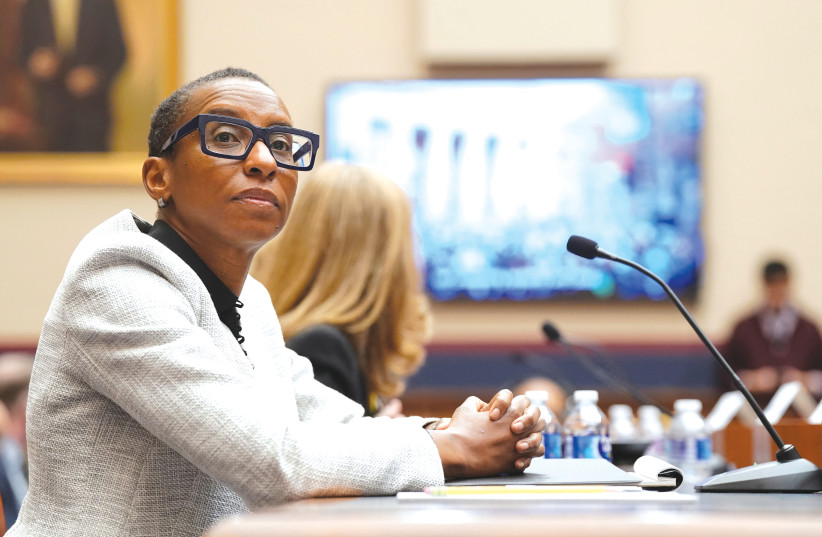Claudine Gay, the president of Harvard, failed to meet her university’s academic standards in half of her 11 published articles, according to a report in the New York Times.
The findings come in the wake of a request by Rep. Virginia Foxx, chairwoman of the House of Representatives Committee on Education and the Workforce, that Harvard turn over internal materials from an initial plagiarism investigation and suggesting that Congress could withhold public funding from the university if it determined that the school was applying a double standard.
Allegations that Gay plagiarized in her work came after a congressional hearing on antisemitism at American universities. Asked by Rep. Elise Stefanik to New York whether calls for the genocide of Jews were a violation of Harvard’s policies, Gay responded that it depends.
In a December 11 article entitled "Is Claudine Gay a Plagiarist?," independent journalists Christopher F. Rufo and Christopher Brunet charged that parts of Gay’s Ph.D. dissertation “would violate Harvard’s own stated policies on academic integrity.”
In some of the examples provided in the article, Gay cited the authors’ research but appears to have used lengthy sections of their writing almost verbatim without using quotation marks as Harvard demands. The official university policy, cited in the article, states that “you must completely restate the ideas in the passage in your own words. If your own language is too close to the original, then you are plagiarizing, even if you do provide a citation.”

Black scholar whom Gay is accused of plagiarizing: Harvard won't condemn her, because she's black
Another example is Gay’s apparent use of work by Carol Swain, a black academic who studies issues of race in America, without any citation at all. Swain commented on these allegations in an opinion piece for the Wall Street Journal, writing that Gay “failed to credit” Swain for her scholarship, “build[ing] on terrain where I plowed the ground.”
Harvard’s internal review of Gay’s work concluded that her articles had “instances of inadequate citation,” but not violations of Harvard’s research standards. The Boston Globe, which declined to call for Gay’s resignation regardless of the findings of the inquiry, criticized the statement as “seem[ingly] contradictory.”
Other academics, the Globe wrote, “have raised concern that… the university is muddying what should be a clear-cut line,” adding that “for the professors who have to enforce plagiarism in the trenches, it matters what message Harvard sends about its guidelines.”
In her opinion piece, Swain wrote that Harvard’s lenience was a function of Gay’s identity: “Harvard can’t condemn Ms. Gay,” Swain wrote, “because she is the product of an elite system that holds minorities of high pedigree to a lower standard. This harms academia as a whole, and it demeans Americans, of all races, who had to work for everything they earned.”
Harvard gov't prof: Gay was sloppy, but academic freedom is paramount
Other academics have dismissed the allegations: Steven Levitsky, a professor of government at Harvard, told the New York Times that the "plagiarism" in question was mostly just "mild sloppiness." Levitsky, author of the 2018 book How Democracies Die, objected to the congressional inquiry into the matter, organizing a petition that Harvard "resist political pressures that are at odds with Harvard's commitment to academic freedom."
The inquiry, and the scrutiny generally, only emerged in the wake of Gay's testimony about antisemitism.
